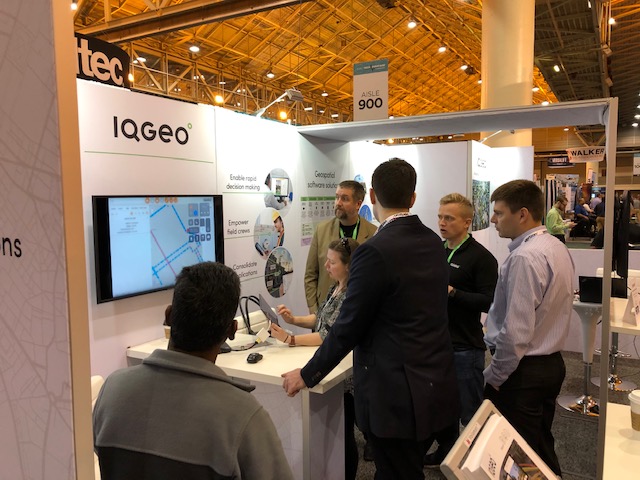Last week I was at the TechAdvantage show and conference hosted by the NRECA (National Rural Electric Cooperative Association). It was the first time I attended this event and it was a real pleasure to speak with delegates and board members at the 2020 conference in New Orleans.
For those not familiar with the NRECA, they represent the interests of hundreds of network operators that provide electrical and, increasingly frequently, broadband services in rural areas of the US. Because of the large geographies and low population densities served by these providers, electrical services in these areas are difficult to justify on commercial grounds alone. As a result, they have adopted an approach whereby all the homes, businesses and farms they serve are members of the larger cooperative.
Independent spirit
This cooperative model has served their members well for decades and will, no doubt, continue to do so for many decades. It was fascinating to spend some time with the people responsible for keeping the lights on across vast areas of the US, and I was impressed with the fierce sense of independence that came through in the conversations about the challenges they face. This independence is not surprising given the lifestyle of these rural communities and their need to be resourceful and self-sufficient in virtually every aspect of their lives.
A metropolitan filter
When we talk about the dramatic changes happening to electric networks today with distributed energy generation (DEG), the role of IoT technology and the impact of electric vehicles (EV), we frequently do this with a metropolitan filter. We often neglect to consider how these transformational changes will impact rural communities. From both a technical and commercial perspective, deploying EV charging stations or superfast 5G broadband networks in a concentrated, densely populated urban environment is far easier than in a lightly populated landscape. However, this doesn’t make these services any less relevant to the people that live in rural communities. To preserve their independent way of life, they must also have access to the latest energy and communications infrastructure.
In many respects, the grid transformation challenges faced by rural electric providers are the same as those faced by urban providers, but they must find solutions that are appropriate for their communities. How exactly NRECA members will fund transformational infrastructure is an important question, but it is a topic for another day. Here I want to touch on something that may be even more critical to the future of these rural networks, and that is their ambition.
Ambition is key
In my, admittedly unscientific, conversations at TechAdvantage I was not only struck by the independence of rural operators, but also by a potential contrast in ambition. Some network operators shared their exceptionally ambitious plans to bring the best possible electrical and communication services to their members, while others seemed much less aspirational.
Any possible reluctance is understandable as these are complex challenges, but we can’t neglect the opportunities that these changes are also creating. For example, the very landscape that is problematic to electricity distribution is a tremendous asset for next generation renewable solar and wind power. Rural areas are uniquely positioned to capitalize on the opportunities created as we transform network infrastructure and the role of network operators.
IQGeo is fortunate to be working with some amazingly positive and energetic rural network operators, such as Peninsula Light. Their strategy and vision is truly inspirational. They are not just thought leaders in this space, but action leaders as well. Rolling out new technology and creative solutions that can serve as a model to others.
In the same way that we must guard against a metropolitan filter, rural operators must also guard against their own rural filter that views megatrends like DEG, IoT and EV as issues for the cities alone. There is no doubt that dramatic network changes are in play. Ambitious rural operators will muster their resourceful independent spirit to take advantage of the exciting new opportunities that these network changes create.
Transforming the future
After spending a few days talking with rural electric network operators in New Orleans, it seems clear that they face many of the same challenges as urban operators, but they will have to employ different strategies and solutions. However, I have absolutely no doubt that they will rise to this challenge, and IQGeo looks forward to working with them to transform their networks, improve the lives of their members, and help to create a more sustainable world.
To find out how we are transforming operations for utility network operators, watch some of our customers talking about working with IQGeo.



 Previous
Previous




